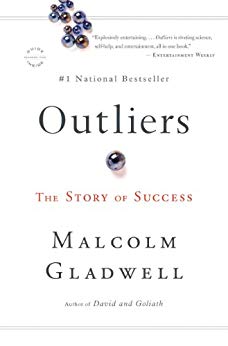

This article is an excerpt from the Shortform summary of "Outliers" by Malcolm Gladwell. Shortform has the world's best summaries of books you should be reading.
Like this article? Sign up for a free trial here .
What is the Matthew Effect? Why does it determine if someone is successful or not? Learn about why the Matthew Effect suggests the rich get richer, and the poorer get poorer.
The Benefits (and Harm) of the Matthew Effect
Early opportunities are important because they tend to snowball into greater and greater opportunities over time.
Just as a few dollars invested in the stock market can grow to thousands over a lifetime, a small advantage can compound over the months or years, leading to huge successes later on. This is called the Matthew Effect.
A passage in the Gospel of Matthew reads, “For unto every one that hath shall be given, and he shall have abundance. But from him that hath not shall be taken away even that which he hath.” In other words, the Matthew Effect is the situation where those who receive opportunity tend to acquire additional opportunities. Those who receive initial disadvantages tend to accumulate further disadvantage.
For example, imagine two families. One is well-off and the other is not, and both have daughters who dream of being professional cellists. The well-off parents send their daughter to a private instructor, which the other family can’t afford. The second family encourages their daughter to play in her school’s orchestra, which practices once a week.
Who has the better chance at becoming a successful cellist? While both children may start with the same skill level and potential, the initial advantage of the first child snowballs—a private teacher leads to more individualized instruction, which leads to a quicker progression through skill levels, which leads to more confidence in cello skills, which leads to better performance, and so on. This is the Matthew Effect at work.
Disadvantages also accumulate in the Matthew Effect. For the second child, playing in the orchestra of a big school means less individual attention. Less attention means less explicit instruction, which leads to fewer skills developed and lower performance, which means to even less attention, and so on.
Matthew Effect Example: Early Birthdays for U.S. Students
———End of Preview———

Like what you just read? Read the rest of the world's best summary of "Outliers" at Shortform . Learn the book's critical concepts in 20 minutes or less .
Here's what you'll find in our full Outliers summary :
- What makes some people outliers, and most others not
- Why some genius outliers end up failing in life
- Why Asians are good at math, and other curiosities of culture






